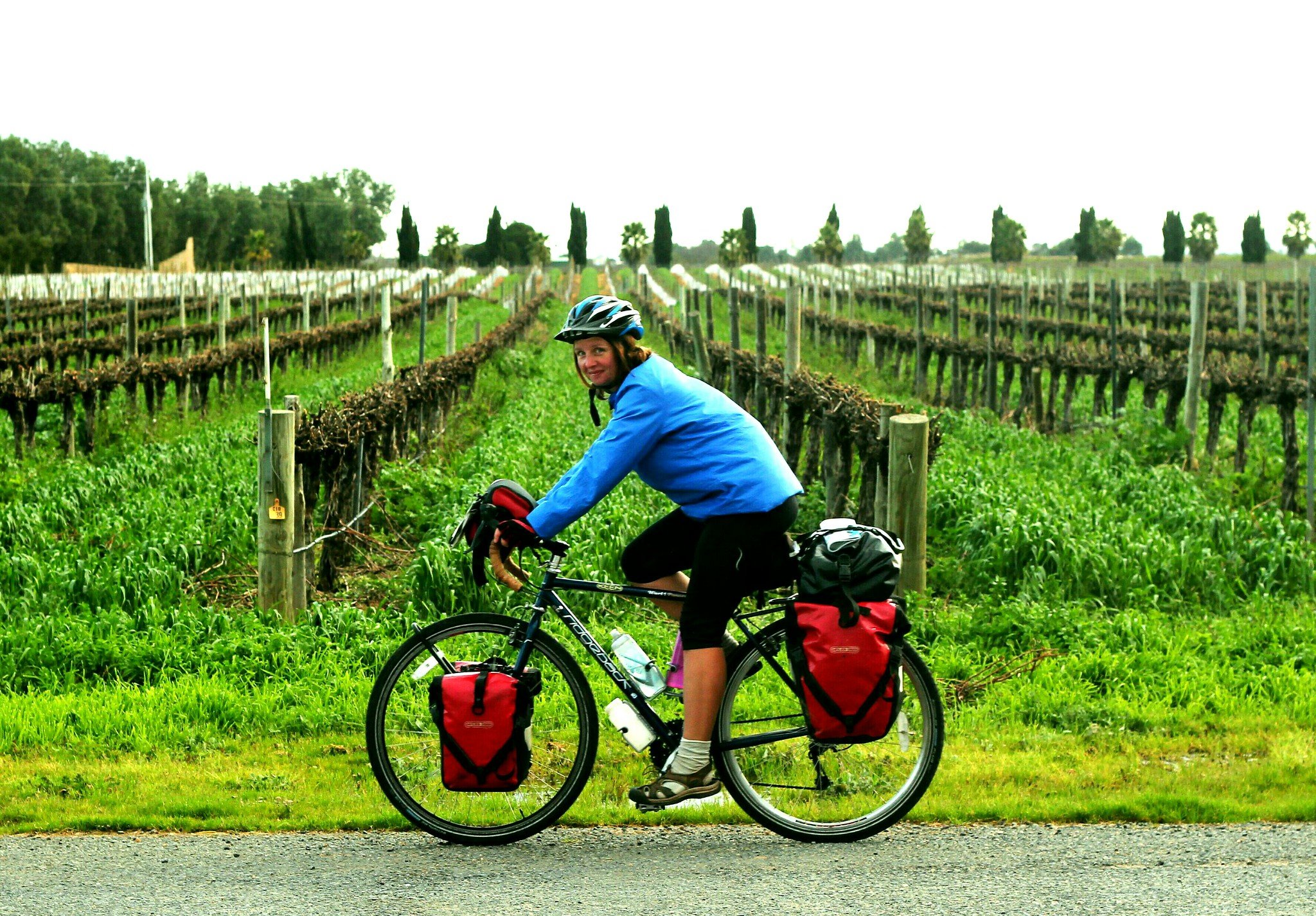
Laura Moss is, without a doubt, an adventurer. She has walked across a frozen lake in Siberia, hiked across the desert in Oman and cycled around the world. But she has one skill in her resume that separates her from the pack of adventurers. She is a solicitor. She has done all her adventures alongside full time work.
It comes as no surprise, then, that Laura is a firm believer in using your time. “Because I worked full time, cycling the world was a big thing. I mean we quit our jobs for it. But the vast amount of stuff that I and we do is stuff that we can fit into annual leave and fit around normal life. Because, I think most people are in the same position where they aren’t able to just quit everything and disappear.”
Laura’s certainly proved that it’s possible to have a perfectly good adventure, or three, without having to quit your job, sell your house and cycle into the sunset. She crossed Lake Baikal in two weeks’ annual leave with her husband Tim Moss (fellow adventurer, organiser of the Next Challenge Grant and an accountant). In fact, it’s amazing what you can do with your annual leave and a bit of creativity. “I had a baby last year and on maternity leave we went off cycling for a month,” says Laura, matter-of-factly, “Because I figured you haven’t often got that chance of being off work for free for ages! So it’s just a case of squeezing things in when you can.” Their nine month old came along for the ride.
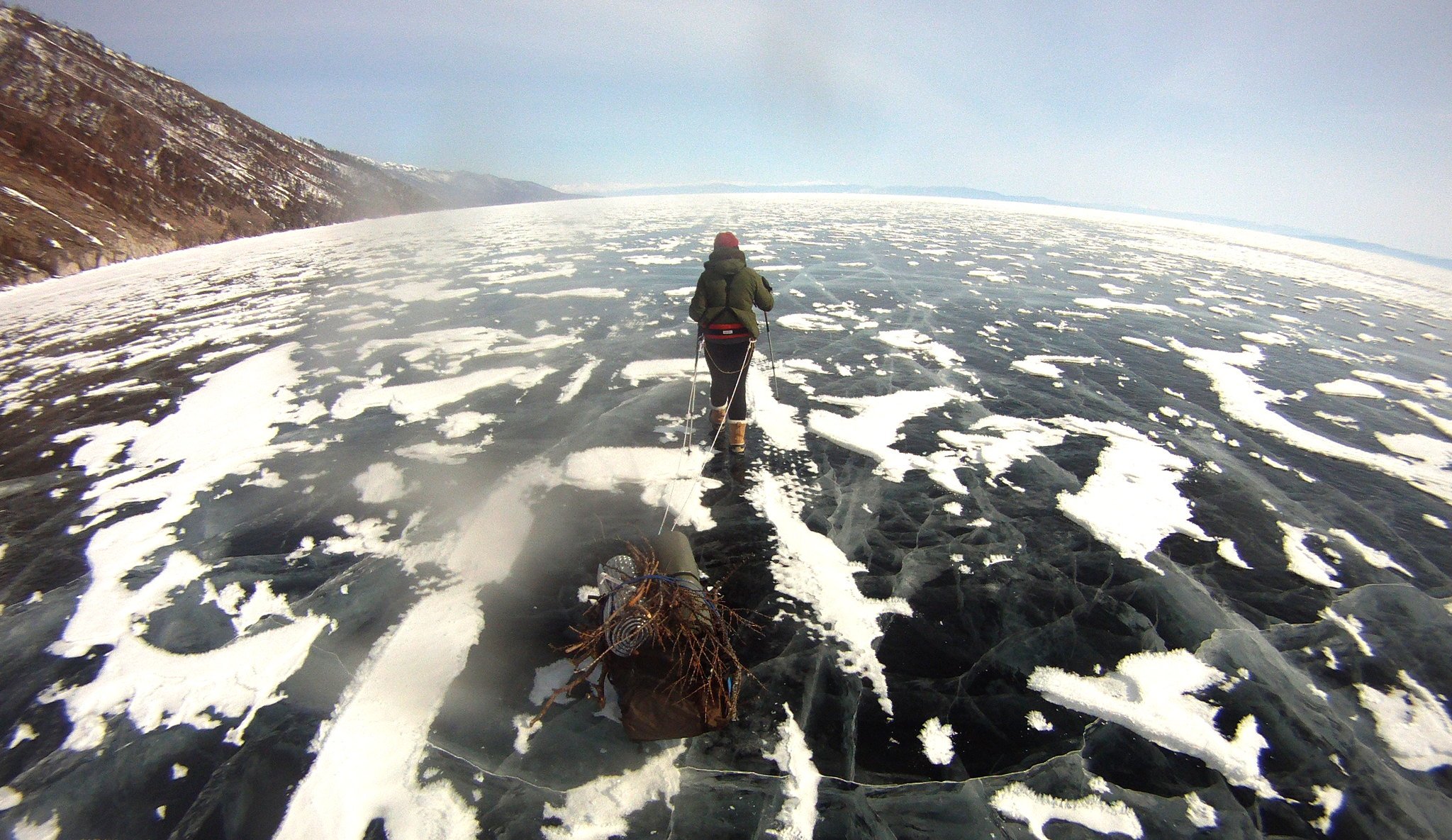
Although Laura has a huge spread of adventure disciplines under her belt – the more I talk to her, the more I feel like she’s tried everything – she is probably most well known for cycle touring. After all, she did cycle round the world and has done many other tours besides.
“It’s not about competition or going really fast, it’s about exploring the world…”
A cycle tour – or adventure cycling – is so completely different to what many of us think of as cycling. It’s less of a form of exercise, more of a lifestyle. For a start, you don’t have to be a ‘cyclist’ to take part – although you do need to be able to ride a bike! “It’s really accessible,” says Laura. “It’s not about competition or going really fast, it’s about exploring the world and that’s what I love – it really suits my ethos. I’m not really into competition or racing, I like exploring.”
“I think there’s a funny cult in this country that people think cycling is all about lycra and going out as a roadie. Where I live, in Leeds, road cycling is a massive thing and you just get packs of people, men mainly, going out in tight lycra on a Saturday morning doing 100 miles. People think that’s what cycling is… and I don’t think it’s a very healthy approach to what it is. If you go to the continent, like in France – okay there is some of that in France – but in lots of countries… Actually, a really good example is when we did a cycle tour in Denmark when I was pregnant: no one batted an eyelid! We stayed with Danish people who were all used to culture cycling, I mean why wouldn’t you go? Whereas in this country I cycled past my due date and I got so many comments, particularly at work. I’d turn up on my bike and people would be like, ‘What? I can’t believe you’re still cycling, that’s so dangerous.'”
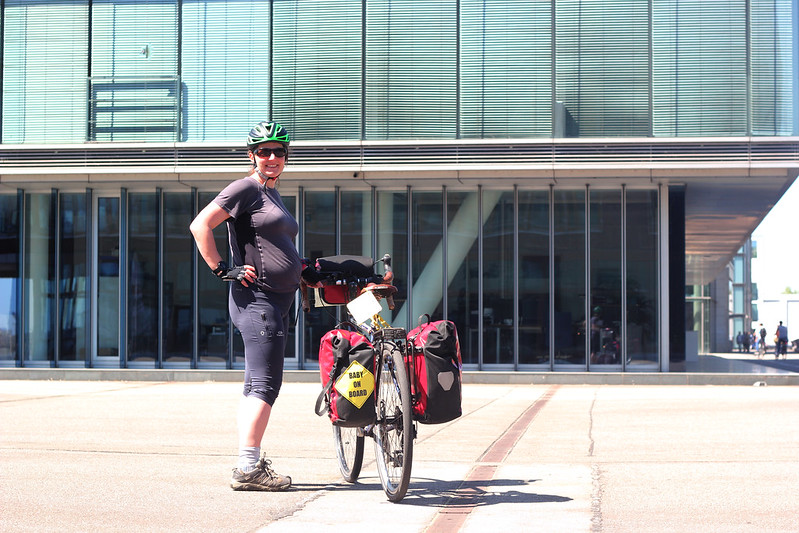
Just as road cycling seems to attract a certain sort of person, so does cycle touring. Laura runs the Cycle Touring Festival, which brings together cycle tourers and their stories from around the world. “It’s turned into this really amazing community of people – and I think it’s something to do with the kind of people cycle touring appeals to. People generally seem to be quite outward-facing and open minded and interested in the world and its cultures – they tend to be really nice people. Sounds a bit cheesy really but it’s true!”
I guess what surprised me the most was that the cycling itself was not a big part of the trip. It was much more about the people we met and the memories we have about the trip are all about the people we met and the interactions we had.
In 2013, Laura set off on arguably the biggest cycling adventure to be had: cycling around the world. But she and her husband Tim certainly weren’t trying to break any records. Even though the Jenny Grahams of the world do exist, more people than you’d expect set off cycling around the world each year. “I guess what surprised me the most was that the cycling itself was not a big part of the trip. It was much more about the people we met. The memories we have about the trip are all about the people we met and the interactions we had. The cycling itself was almost secondary. It really wasn’t about the physical endeavour at all because, actually, it becomes easy. Once you’ve done a few days cycling a heavy bike uphill you can spend all day cycling a heavy bike uphill, because you’ve got really good gears on a touring bike, generally.”
So if it’s not about exercise, or going fast, why do it? Well, it’s the perfect speed: slow enough that you can see the country; fast enough that it doesn’t take forever. “Exactly,” agrees Laura, “whereas with walking trips… we hiked across South America a couple of years ago and I found it really frustrating.” You just don’t make enough progress in a day.
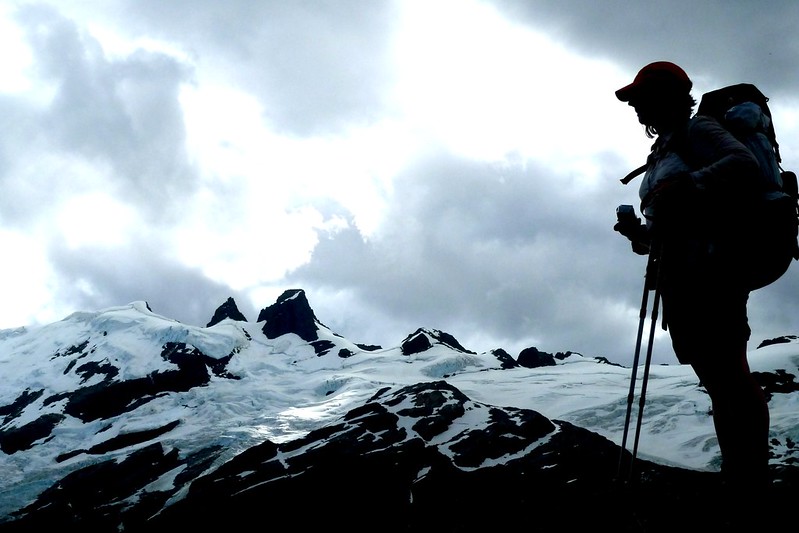
That said, cycle touring is still very much about the journey, not the destination. “Other forms of cycling are about exercise, sport or commuting, whereas touring is about travelling and exploration by bike. And I think it’s different from other forms of travel because you don’t jump form honey pot site to honey pot site. It’s all about being between places. So like in Iran we may have seen three major tourist sites. But it took us two weeks to get between each one, so that two weeks is what’s important. Seeing these tiny villages thinking ‘I have no other reason to go to these‘ but actually that’s what sticks in your mind. So as a form of travel it’s pretty unique and, I think, incredible.”
“It’s different from other forms of travel because you don’t jump form honey pot site to honey pot site. It’s all about being between places.”
Yet, inspite of how cycle touring is about travel and exploring, not physical endeavour, there are still so many people scared of being at the back of the group. Particularly in a group of solo travellers, going on an adventure together for the first time. Laura was involved with The Adventure Syndicate, an organisation who encourage cyclists who happen to be female to push themselves outside of their comfort zone. They run several events and trips throughout the year. I ask Laura if they had a similar experience.
“Yeah everyone thinks they’re going to be the one at the back,” agrees Laura. “We [an Adventure Syndicate group] were cycling up the Bealach na Ba on the North Coast 500. It’s like an alpine pass but in Scotland and Emily Chappell was with us.” Emily Chappell is something of a celebrity of long distance cycling and endurance racing. “She told me afterwards that she was cycling up this hill. She caught up with one of the group and she happened to say to this girl, ‘Oh I hate this bit. I get scared coming round this corner because you just see a wall in front of you, it’s the steepest part of the climb.’ And this girl was really shocked, she was like ‘Emily – gosh! What you won the Transcontinental and you’re scared of this?’ This girl said it was really helpful to her because she realised that actually we’re all human and even someone who appears to be like a competitive winner is human.”
So even seemingly super-human cyclists get scared of big hills. But that doesn’t stop them cycling them anyway. And when the aim of the cycling is adventure, not winning, surely a little bit of a challenge is good. It’s not really an adventure if you know it’s going to be easy from the start.
“I remember on one of the Adventure Syndicate training camps Emily had been dealing with the emails from people who wanted to go and about half the participants emailed her in advance and said ‘Emily I’m worried I’m not fit enough!’ It is a problem with women I think in particular. I mean, I see it at work. It’s not just linked to adventure, it’s like that more generally.”
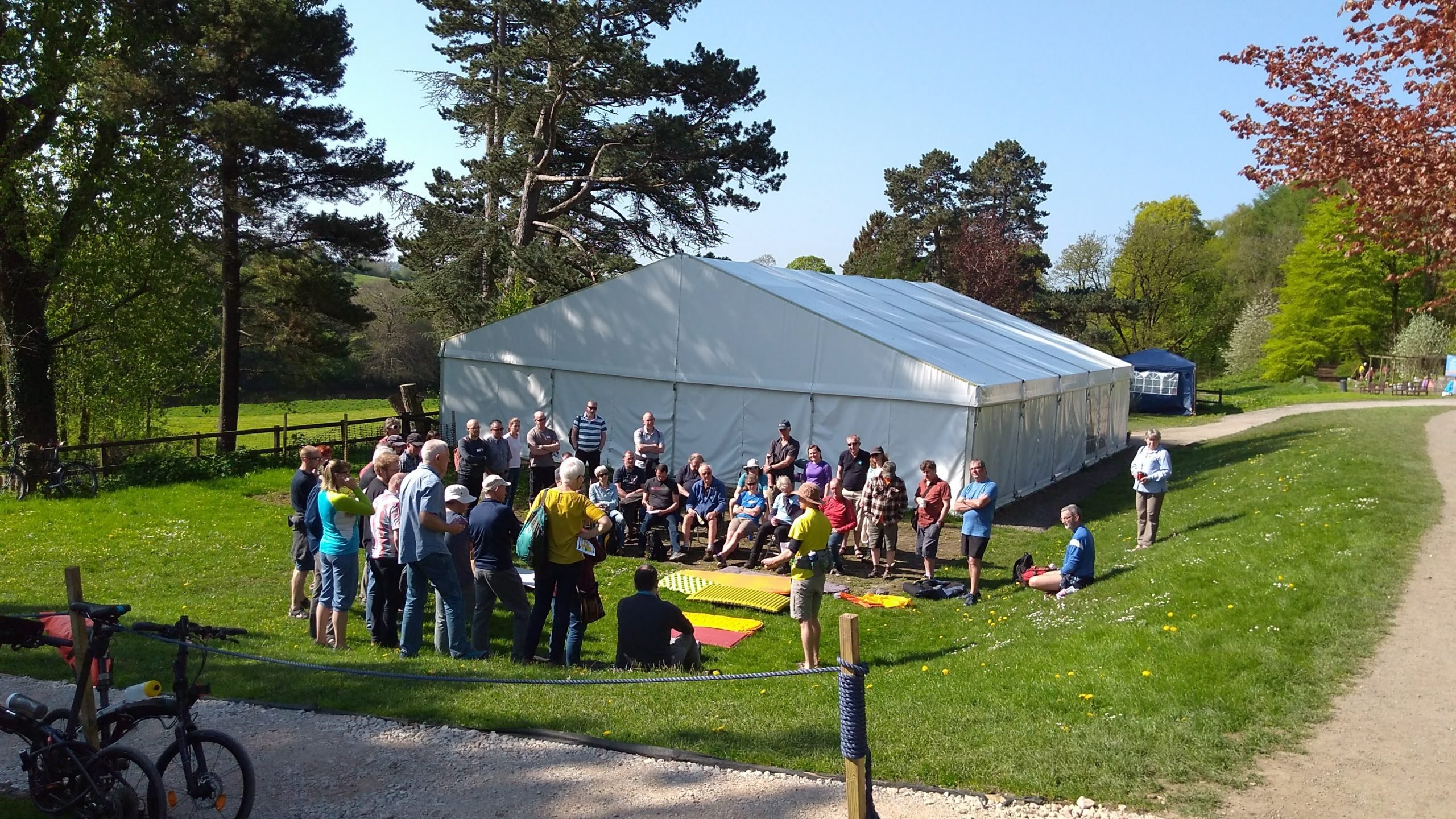
Laura is keen to help people go on their first cycle tour – or any cycle tour for that matter. That’s part of the reason the Cycle Touring Festival exists: as a way to share knowledge, pass on stories and equip you for your own tour. I ask her how the festival started. “So you remember we went on that big cycling trip [around the world]? Before we went, we spent a lot of time contacting people, getting advice about cycling to different countries, route planning, kit planning and everything else. We had lots of contact with people over email and I kept saying, God it would be so nice to meet these people in the flesh.
“We were part of a really active adventure community in London – there was a time in London a few years ago when there were quite a lot of us around. It was people like, well, Tim in particular and Tom Allen and Dave Cornthwaite was just starting out and Leon McCarron. There was a real gaggle of us who’d meet up fairly often and I really wanted to recreate that but specifically for cycle touring. And I kept saying to Tim that when we get home we should just arrange for everybody to get together and swap stories about cycle touring.
“Then off the back of that, we were cycling in Iran and we met up with Tom and Leon when we were there, because they were doing an expedition there at the same time. And I was chatting to them about it and from talking it through with Tom it evolved into: why not do it as more of a forum where people can get together and share stories, but also somewhere people can go and plan their own trips? So it ended up going from being a bit of a social get together to being an actual festival and event where everything cycle touring was celebrated… This year is the 6th year and the best thing about it, which I’m quite surprised at really, is just how it has turned into this really amazing community of people.”
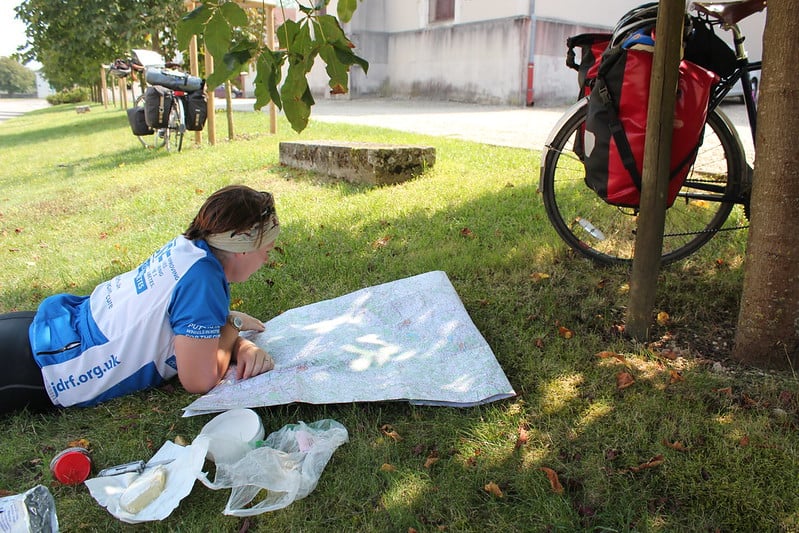
There are so many ways you can do a cycling adventure. Everything from booking an organised cycling trip, to freestyling on a vague direction. I personally spent three months cycling around Europe on the novel idea to get to Switzerland via as many countries as possible. But then, I didn’t have a deadline. After all her research before cycling around the world, some of the most memorable experiences weren’t in the plan at all.
“We actually went to South Korea and Japan – we weren’t meant to go! From Iran we were going to go across Central Asia but basically we’d had three months of winter and we were really struggling. It was just so cold and it was making us really miserable, the cold dark days. We used to live in Oman, so we decided that, instead of going north to Central Asia, we’d go south to Dubai and Oman, to go and see friends. Then we went to India and we got really sick and Tim was in hospital. We were both a bit fed up. So after a month of India, the guy we were staying with recommended South Korea as a destination… So it was totally unplanned, but it turned out to be one of the best parts of the trip. South Korea’s got this amazing cycling infrastructure. You can go from the north to the south virtually traffic free following rivers. So we did that for a couple of months and slept under pagodas.”
Laura’s advice for your first cycle tour? “To not get too hung up about kit. That is definitely the biggest one. People email us loads getting really het up about what sort of bike they should have and what sort of kit they should bring – and you just don’t need to. The first ever tour I went on was on a crappy mountain bike that I had from uni. And really, just go.”
Sign up for your next cycling adventure or check out the Cycle Touring Festival (they’re doing an open-to-all online event this year). Plus if you know someone looking for a financial boost to get started on their DIY adventure, send them to The Next Challenge Grant.


